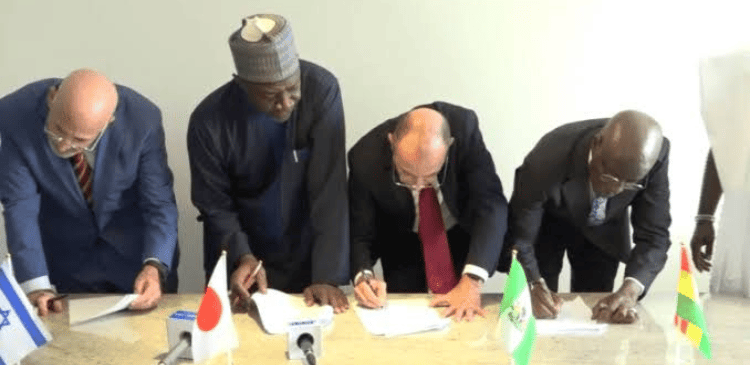The Nigerian Government has signed a Memorandum of Understanding, MoU with Israeli and Japanese companies to commence assembling and manufacture of environmentally friendly, green, electric and smart automobiles by 2023.
National Agency for Science and Engineering Infrastructure, NASENI entered into partnership on behalf of the government with the various Israeli, Japanese and Nigerian companies on Thursday, in Abuja.
Israeli Ambassador to Nigeria, Michael Freeman, said that the partnership which was a combination of Israeli, Japanese and Nigerian technologies would help address the many challenges affecting the transport and environmental sectors in Nigeria. The partners hope to leverage on entrepreneurship and innovation to create a project that is going to work and succeed.
The project which will also offer cheap and safe way of transport even has a technology to ensure that the motorcycles are only used for legal and appropriate purposes.
The envoy expressed confidence that the programme that is starting in Nigeria will be successful and will be replicated across Africa.
NASENI Executive Vice Chairman, Professor Mohammed Haruna lauded the collaboration which he said had come to stay and would be domesticated in the country. He said Nigeria would see to the manufacturing of locally-assembled electrical vehicles in the nearest future.
The NASENI CEO said the first attempt to domesticate certain technologies in the country, especially in the automobile industry has not worked with continuous importation.
Representative of the Israeli company, Ayal Raz, said Nigeria was safe to invest, adding that the initiative is going to change so many things in Nigeria.
The Japanese official said that his company beyond production, is keen on supporting the African continent to build sustainable nations with clean and safe technologies.
The project was facilitated by a Nigerian company that seeks to attain the United Nations Sustainable Development Goals, SDGs 2030, Goal 7 which seeks to enhance international cooperation, facilitate access to clean energy research and technology.
(Editor: Terverr Tyav)








